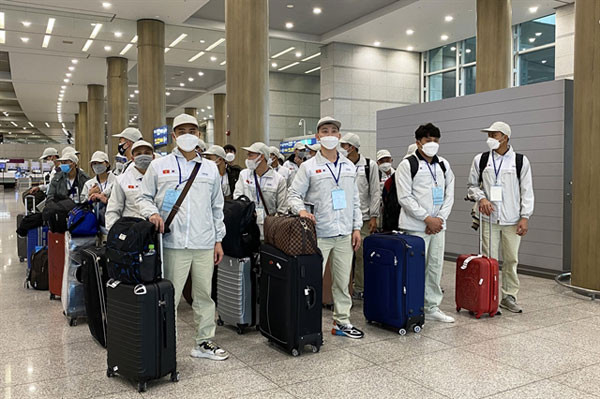
The districts are Nghi Xuan and Cam Xuyen districts of Ha Tinh Province; Chi Linh City of Hai Duong Province; Cua Lo Town, Nghi Loc and Hung Nguyen districts of Nghe An Province; Dong Son and Hoang Hoa districts of Thanh Hoa Province.
The decision is made based on the Memorandum of Understanding on the Employment Permit System (EPS) with South Korea, and its roadmap to reduce illegal workers in the 2021 - 2022 period.
According to the document, the recruitment programme will be halted for localities which have more than 70 illegal workers residing in South Korea, and over 27 per cent of labourers who did not return to Vietnam on time upon the expiration of their contracts.
The temporary suspension does not apply to workers in the fishery industry, those who have come to South Korea under the EPS programme and return on time, and illegal labourers who voluntarily come back home during the penalty exemption period.
The MoLISA required that local authorities continue to take measures to bring illegal workers home, as well as other migrant employees in accordance with their contracts.
The local suspension of the EPS programme in 2023 will be determined at the end of this year, based on each locality’s percentage and number of illegal workers in South Korea.
According to the MoLISA’s Department of Overseas Labour, the programme’s recruitment quota in 2022 is 59,000, increasing by 7,000 compared to the previous year.
The EPS was started in 2004, and since then over 110,000 Vietnamese labourers have come to work in South Korea under the programme.
There are currently 28,000 Vietnamese workers in South Korea under the EPS.
On February 1 last year, the minister of Labour, Invalids and Social Affairs Dao Ngoc Dung agreed on the extension of the programme with South Korean Ministry of Employment and Labour.
South Korea has been a popular destination for many Vietnamese migrant workers. This number is forecast to increase, following South Korea’s resumption of the programme in May 2021 after more than one year of hiatus.
Source: Vietnam News